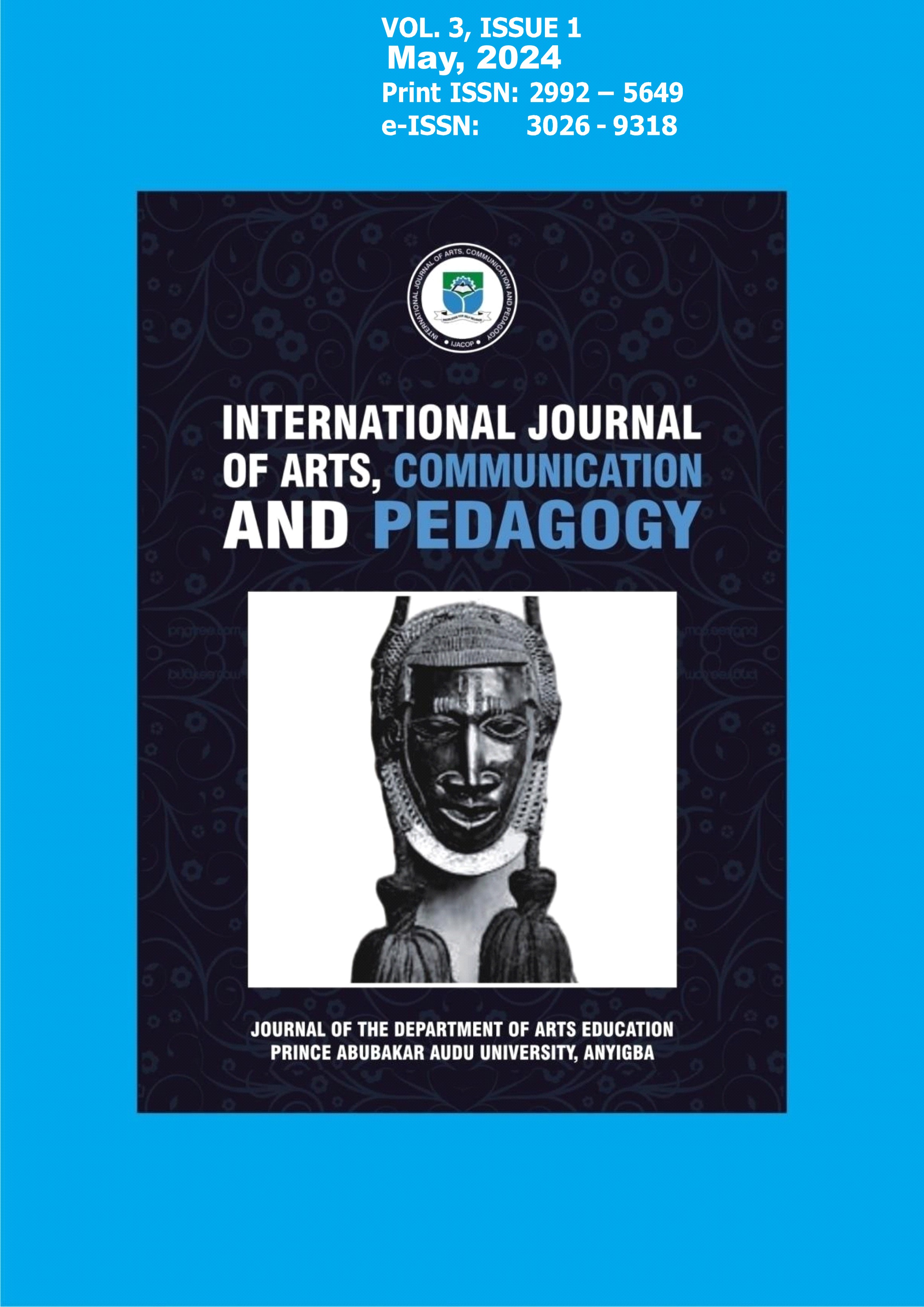PRONUNCIATION TEACHING IN NIGERIA IN RELATION TO ENGLISH LANGUAGE CURRICULUM: A FOCUS ON THE YORUBA-ENGLISH NON-NATIVE SPEAKERS
Keywords:
British variety, Communicative and Phonetic Accommodation, Nigerian English, Two-faced-PronunciationAbstract
The two-faced nature of English language pronunciation teaching in Nigeria is becoming an issue that calls for researchers to examine. ith English Language curriculum. It explicates the distinction between the Nigerian English Pronunciation (NP) and the British variety (BrE). Also, it unravels the confusing nature of English language pronunciation teaching in Nigeria in relation to English as a Second Language (ESL). A questionnaire was designed to elicit information from 10 purposively selected ESL students. Also, five English lessons were recorded; and phonological realizations of selected words were examined and analyzed, using simple percentages. The results reveal that some English Language teachers produce English words differently from BrE variety. Their productions exhibit phonological features such as consonant reduction, vowel substitution, cluster reduction and vowel lengthening. The study drew insight from Giles’ Communicative Accommodation Theory (CAT) and Smiljanik & Bradlow’s Phonetic Accommodation.
Downloads

Downloads
Published
Issue
Section
License

This work is licensed under a Creative Commons Attribution-ShareAlike 4.0 International License.




